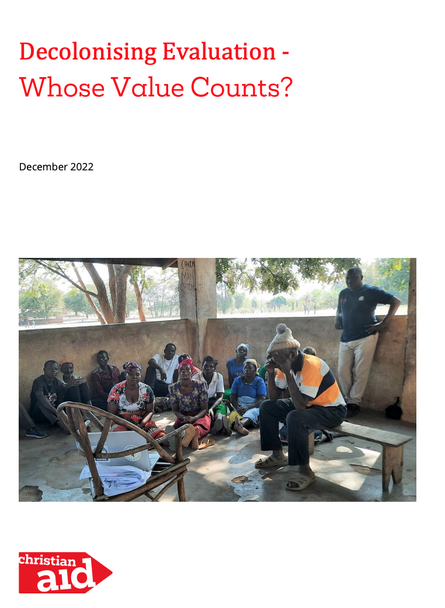
Along with some other organisations in the wider development and humanitarian sector, Christian Aid is undergoing a process of internal critical reflection regarding the legacy of colonialism on who we are, how we work and what we do. The formal development sector and the current aid architecture emerged at the end of the colonial period, and many argue it still replicates the same asymmetrical global power relations and assumptions that characterised previous relationships between high-income and low-income countries.
As an organization, we have challenged ourselves to critically reflect on our practices and make shifts to decolonise our thinking and actions. Christian Aid recognises that how we evaluate our work is a key area which has been shaped by colonial history, structures and understandings of knowledge and power. We propose that “traditional” evaluation is problematic in that outsiders with power are the ones setting the evaluation agenda, deciding what is valuable, defining what success is and putting in place criteria by which success is assessed. These top-down approaches neglect the perspectives, values, and knowledge of those who experience poverty and inequality, and continue to reflect colonial structures, placing Western ways of knowing and seeing the world as superior.
This paper aims to critically reflect on evaluation practice through a decolonisation lens, considering who decides what success looks like, how we assess and measure results, and how Christian Aid as an INGO could take forward a decolonial approach to evaluation. This aligns with other initiatives ongoing at Christian Aid and in the wider sector, such as Peace Direct’s work on decolonising aid and decolonising peacebuilding and the Start Network’s Anti-racist and Decolonial Framework .